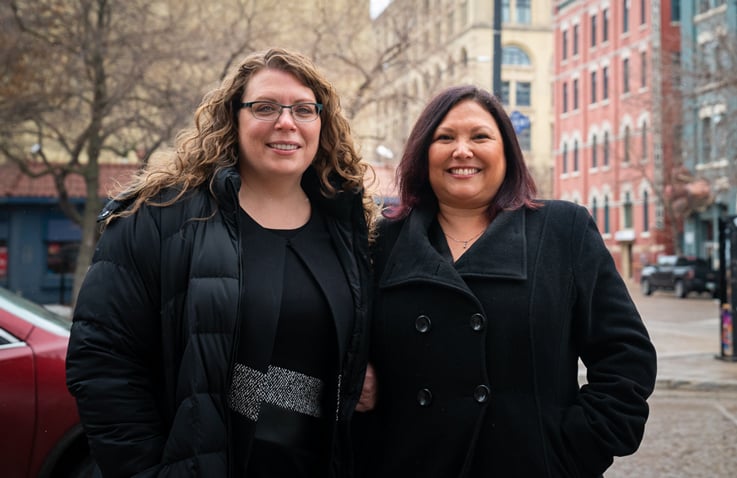A people-centric approach: Law firm thrives with a compassionate practice and workplace
Manitoba’s first Aboriginal-owned law practice emphasizes a different approach.

Priscilla Sternat-McIvor wanted to be a lawyer since she was a child. She went to school in Winnipeg, but spent weekends and summers at the Sandy Bay First Nation where her parents had previously lived, 200 kilometres northwest of Winnipeg.
She couldn’t help notice the sharp contrasts between the city and her First Nations community, which had unpaved roads, no streetlights and homes with outhouses and no running water.
“I would ask why my life was so different between my home community and Winnipeg,” Sternat-McIvor says. “My dad told me it was very complicated and I needed to become a lawyer to fix the roads.”
When her grandfather asked what she wanted to be when she grew up, she recalls, “I always said I wanted to be a lawyer. I told him I wanted to fix the roads in Sandy Bay.”
Sternat-McIvor’s childhood dream came true when she became a lawyer in 2002. She articled with the Assembly of Manitoba Chiefs, then worked at a pair of Winnipeg law firms.
In 2017, she co-founded her own law practice with Lisa Manaigre, a Métis lawyer. Their firm, Sternat Manaigre, was the first Aboriginal-owned law practice in Manitoba and has grown to six lawyers specializing in family and collaborative law.
A less adversarial approach
The duo decided to become partners when they learned that the law practice where they both worked was going to break apart. Sternat-McIvor called Manaigre to talk about the breakup and asked if Manaigre had ever thought of striking out on her own. “There was this long, quiet pause, and she said, ‘I have it all ready to go,’” Sternat-McIvor says.
It turned out that Manaigre had had the same thoughts and had even developed a business plan. Manaigre had also decided to become a lawyer when she was young, motivated by the painful breakup of her parents when she was in high school. “I saw the impact that the court process had on our family, and I thought, ‘There’s got to be a better way,’” she says.
See the full story on the bdc website.